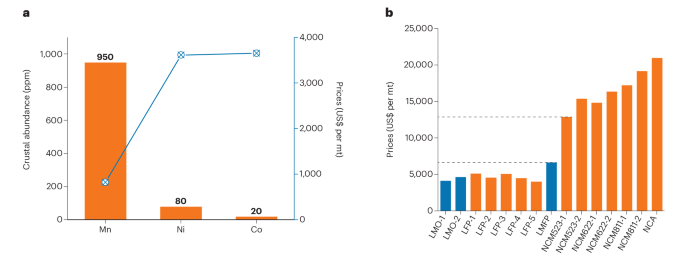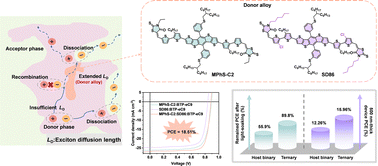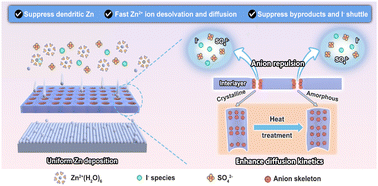How Long Does It Take to Close on a House? Your 11-Step Timeline Explained
Learn how long it takes to close on a house, what steps are involved, and how to avoid delays so you can get your keys faster. The post How Long Does It Take to Close on a House? Your 11-Step Timeline Explained appeared first on Redfin | Real Estate Tips for Home Buying, Selling & More.


Most homebuyers close within 30 to 60 days after their offer is accepted.
Your offer’s been accepted, congrats! Whether you’re buying a home in Seattle, WA or Atlanta, GA, you’re officially on the path to ownership. But before you get the keys, there’s a process ahead. From inspections and appraisals to title work and signing day, closing on a house typically takes 30 to 60 days, depending on your financing, location, and how quickly paperwork moves.
In this Redfin guide, we’ll walk you through the 11 key steps between offer and closing day so you know exactly what to expect – and how to stay on track.
Average time to close on a house
The average closing timeline for a home purchase is about 42 days, but yours might move faster or take longer. That number reflects the typical timeline for purchase loans, not refinances, and includes everything from inspections and appraisals to mortgage underwriting and paperwork.
In a best-case scenario, closing can happen in as little as 30 days. But depending on your loan type, location, and how quickly documents are processed, it’s not uncommon for the process to take up to 60 days or more.
Factors that influence your timeline include:
- Loan type: Government-backed loans (like FHA, VA, or USDA) may have extra requirements that add time.
- Market conditions: In busy areas like Seattle or Atlanta, again, delays in appraisals or title work can add days or even weeks.
- Your responsiveness: If your lender asks for documents, responding quickly helps keep everything on track.
- Issues with the home: A low appraisal or inspection problem could lead to renegotiations or additional approvals.
If you’re paying with cash, the average time to close can drop significantly, sometimes in as little as 7–14 days, since you’re skipping many financing-related steps.
How to avoid delays when closing on a house
Staying proactive, responsive, and organized can help you close faster and with fewer surprises. While some delays are out of your control, many common issues can be avoided with good communication and preparation. Here’s how to keep your closing timeline on track:
- Respond quickly to lender requests: If your lender asks for updated bank statements, pay stubs, or explanations for credit activity, don’t wait. A delayed response can stall underwriting for days or weeks.
- Avoid new credit activity: Opening a new credit card or financing a large purchase (like a car or furniture) during closing can raise your debt-to-income ratio and trigger a second round of underwriting. Wait until after closing to take on any new debt.
- Don’t change jobs mid-process: Lenders verify employment multiple times before closing. A job change, especially to a different industry or pay structure, can force them to reevaluate your loan eligibility and delay approval.
- Double-check documents for accuracy: Typos on forms, mismatched names, or incorrect bank account info can cause last-minute snags. Review your loan estimates, closing disclosure, and wire instructions carefully.
- Schedule inspections and appraisals early: The faster you complete inspections and appraisals, the sooner your lender can move forward. Delays in scheduling, especially in busy markets, can push back your closing date.
- Have your funds ready: Whether you’re wiring funds or bringing a cashier’s check, make sure you know your title company’s instructions and have everything lined up a few days in advance.
- Stay in touch with your real estate agent and lender: Regular check-ins can help catch potential issues early and ensure all moving parts – insurance, utilities, paperwork – are progressing on time.
11 steps to closing on a house
1. The closing process begins
A house closing process typically takes 30-60 days, with several steps that need to be taken in order for a swift and smooth closing process. Many of the steps will occur at the same time, so make a plan of keeping track of where you’re at with each requirement for closing. This way you’ll be able to move onto the next step quickly or check off that requirement and be that much closer to closing on your new home.
Consider online closings
Also, note that there are a growing number of digital-first lenders and title companies that may enable you to complete your entire closing process remotely, often with shorter timelines than the ones described below.
2. Submit documents and respond to lender requests
Average time: Ongoing throughout the process
After your offer is accepted, your lender will begin finalizing your mortgage. Expect to send in paperwork -like pay stubs, bank statements, and tax returns- and respond to follow-up requests quickly. Delays in communication can push back closing, so try to stay available during this time. Ask early on for a full list of documents your lender will need before closing.
By law, your lender must provide a loan estimate within three business days of your application or a major change, like finalizing the property. Review it carefully, it outlines your loan and closing costs. You’ll also need to decide whether to lock your interest rate, which may come with a fee depending on the lock length. To avoid delays, don’t take on new debt or switch jobs before closing.
3. Shop for title insurance and closing services
Average time: 7–14 days
Lenders require title insurance to protect against issues with the property’s title. They’ll often recommend an escrow or closing agent who will handle purchasing the policy, but you can request alternatives if you have a preference.
You’re allowed to shop around for both escrow services and title insurance, though savings may vary by market. Once chosen, the title company will run a title search and flag any claims or liens. Most findings are minor, but serious issues—like unpaid debts—could delay closing.
4. Schedule a home inspection and negotiate repairs
Average time: 7–14 days
If your contract includes an inspection contingency, schedule the inspection as soon as possible—don’t wait for the appraisal. Most homes will have at least a few issues, and addressing them early gives you time to negotiate repairs or credits without delaying closing.
In resale homes, buyers often request price reductions or credits for significant issues. For new construction, builders may agree in writing to complete minor repairs after closing—but your lender will still need a Certificate of Occupancy before funding the loan.
5. Get the appraisal report
Average time: 14–30 days
Your lender usually orders the appraisal soon after issuing your updated loan estimate. In busy markets, appraiser backlogs can make this one of the biggest factors in how long closing takes. If the appraisal comes in low, you may need to negotiate with the seller, cover the difference, or -if you have an appraisal contingency– walk away from the deal.
Once the appraisal is done, your lender will issue a mortgage commitment letter. This confirms they’ll fund your loan, though it may include final conditions to meet before closing.

6. Shop for homeowner’s insurance
Average time: 3-14 days
Getting homeowner’s insurance may be one of the easiest steps in the closing process, especially if you already have a relationship with an insurance company that writes homeowner policies.
Most lenders require buyers to have active homeowner’s insurance until the loan is paid off in full. Your lender will probably require you to provide proof of insurance before closing. Check with your lender to find out which coverage levels they require, and then shop around for quotes—or work with your existing insurance agent to tailor a policy to meet your needs.
7. Look out for revised loan estimates
Average time: Ongoing throughout the process
Expect to receive several updated loan estimates before closing, since lenders typically generate a new copy whenever more information about the final loan—such as the projected title insurance and homeowner’s insurance premiums—becomes known.
The lender will often perform another credit check before closing on a house. If anything has changed with your credit, this could delay things. There may also be lender-related delays that are outside your control, such as if the appraiser the bank chose didn’t deliver the appraisal report by the specified date. If that happens, the lender should be able to extend the rate lock at no charge. In other cases, you may have to pay a fee to extend it.
8. Take the final walkthrough
Average time: 3 days before closing
Use the final walkthrough to check that agreed-upon repairs were completed and that the home wasn’t damaged during the seller’s move-out. If something’s missing or broken—like an appliance the seller promised to leave—your agent can help negotiate a credit so closing stays on track.
It’s common to find small issues like nail holes or a need for deep cleaning. These typically don’t delay closing but are worth noting so you can line up contractors right after move-in.
9. Review documents before closing
Average time: 3 days
By law, the closing agent must send you a final loan disclosure at least three business days before you’re scheduled to sign your paperwork. Check in with your escrow agent to make sure they’re on track to send over every document you’ll need to sign.
These are some of the most important documents you’ll see at closing:
- Closing disclosure: A standard five-page form that lists all of the final terms and costs of the mortgage loan you’re about to close on.
- Promissory note: The document that contains the promise to repay the loan amount borrowed, and the terms for repayment.
- Mortgage or deed of trust: There are different versions of this document that vary by state and lender.
Questions to ask the escrow company before the closing:
- What documents will I need to bring, such as a government-issued photo ID?
- How much will I need to pay at closing, and how do they want the payment made?
- If I’m receiving a rebate at closing, how will that payment be made?
10. Close the deal and get the keys to your new home
Average time: Less than one day
When you sit down to sign all closing paperwork, there are several crucial things to check, even though you closely reviewed the documents beforehand:
- Are the loan type, interest rate, monthly payment, and other key terms what I expected? Do they all match?
- Is my personal information correct on all of the documents?
- Are there any fees that I don’t understand or that have changed significantly?
- What happens if I fall behind on my mortgage payments?
If there are any significant differences between the documents you reviewed before the closing day and the documents they give you on closing day, hold off on signing until you fully understand why there’s a difference. Don’t feel pressured to skip steps or go faster than you’re comfortable with.
11. Save and file your documents
Average time: Less than one hour
You’ll want to keep your original documents in a safe place, since you might need to provide them when you later sell the house, have to make an insurance claim, or are in another situation where you need to prove ownership. The most important original documents to keep in a safe place are the purchase agreement, deed, promissory note, and deed of trust or mortgage.
Ideally, the closing process will go more smoothly than you expect, with no hiccups that cause delays or derail your closing. If delays happen, be flexible and respond quickly. And once you close on your new home, you can create a new house checklist to help start your new journey of homeownership.

Tips for closing on a house quickly
- Consider the digital closing process: The remote home closing process may be faster and more convenient for you than in-person.
- Prepare paperwork ahead of time: Have your documents on hand in advance for your lender to speed things along. Ensure you have copies of your tax returns and W-2 statements from the last two years. You will also need your two most recent pay stubs and bank statements. Gathering your documents may be your most time-consuming process; however, they are required verification documents you have to show your lender.
- Be honest with your lender: If you’re worried that you’re in a situation that will harm your approval—you must disclose it to your lender. You may be committing loan fraud if you withhold information from your loan application. No matter what, your lender will discover the information you elect to withhold. Credit checks, occupancy tests, and employment checks are all within the mortgage approval process.
- Use pre-approvals: Reduce your time by a week arriving on the day of your offer with a pre-approval ready in your hand. If your loan is pre-approved, your lender will quickly move you from the “writing the contract” to the “underwriting the loan.”
The post How Long Does It Take to Close on a House? Your 11-Step Timeline Explained appeared first on Redfin | Real Estate Tips for Home Buying, Selling & More.


















































































































































